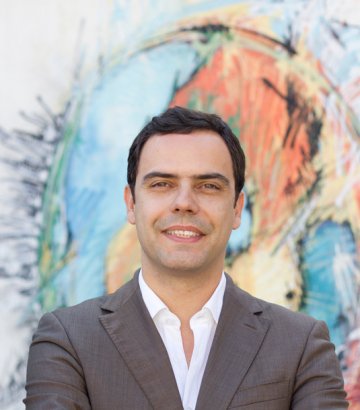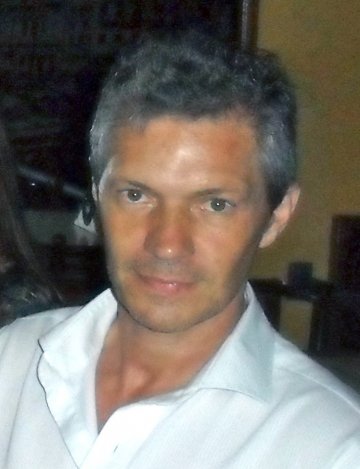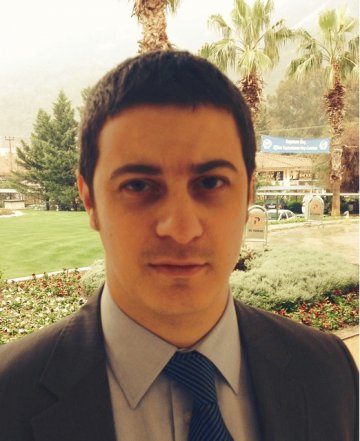Julie Zerlauth-Disic coordinates the UNICEF France ´Ville amie des enfants´ (A city that's a friend to the children) program. In particular, she establishes and develops relationships between the local authorities involved in the program. She also played a role in the creation of the UNICEF national opinion project in 2013: "Let´s listen to what the children have to say", a study on the social integration of young people, through the voices of young people.
‘Ville amie des enfants’ is a UNICEF international initiative which links cities together through their engagement with the improvement of young people's well-being. The program is one of action and asks the cities involved to present a detailed proposition of their plans and projects with the objective of improving the situation for young people in that area, primarily focusing on developments in security, health, education and the opinions of young people.
The program started in France in 2002 with 12 participants and today has around 240. It allows the participants to benefit from a network of communication and training, and holds an annual conference whose aim is to encourage a dynamic exchange of good practices, ideas and projects.
IJJO Interviews
FRA
France
PRT
Portugal
In this interview, Pedro Calado talks in depth about the Choices Programme (Programa Escolhas), which promotes the social inclusion of children and youths of the most vulnerable communities in Portugal.
Pedro Calado graduated in Geography from the University of Lisbon, with a specialisation in education, holding a Master's degree in Geography from the University of Lisbon/University of Sheffield, with a specialisation in "Exclusion, Society and Territory". In 2011 he took the INSEAD Social Entrepreneurship Programme.
Consultant and external evaluator in various organisations, such as the Calouste Gulbenkian Foundation, he is also a founder and volunteer in various organisations of the third sector.
Mr. Calado is currently working as the High Commissioner for Migration, and the National Coordinator of the Choices Programme.
He has been the Choices Programme delegate in the European Crime Prevention Network (EUCPN), and the award winner, in 2003, of the European Heinz Roethof Prize, conferred by the European Union.
In December 2014 he collected on behalf of the Choices Programme the ‘Juvenile Justice without Borders’ International Award, given by the International Juvenile Justice Observatory.
In this interview, Jean Schmitz describes the activities and the projects undertaken by the Latin American Institute for Restorative Practices – ILAPR, Instituto Latino Americano de Prácticas Restaurativas - and explains the importance of spreading innovative methods of restorative justice, particularly in Latin America. This institution, based in Lima and whose main goal is to promote and foster learning, personal growth and social responsibility while promoting human and citizen relationships, betting on a better quality of life, as well as on an emotional well-being and a respect for citizens' rights, uses a methodology based on restorative practices. In these lines, Jean Schmitz will, among other issues, talk about the lessons on restorative practices taught at the ILAPR and describe the positive outcomes of using restorative justice practices, especially in a school environment, in order to reduce or prevent violence and crime by making people feeling they are part of a community in which they can share their feelings and ideas.
TUR
Turkey
In this interview, Göktan Koçyildirim describes the existing child protection system and the resources devoted to the care and the best interest of the child in Turkey. He recalls the progress that has been made on those matters, but he also points out the main existing flaws in the juvenile justice system in Turkey, as well as the related challenges in the protection and justice for children, specifying the measures that UNICEF Turkey is taking in these areas. Considering the present situation in Syria, he addresses a current issue which has an impact on Turkey, namely explaining how Turkey deals with the problem of Syrian refugees, especially child refugees. As the Justice for Children and Child Rights Monitoring Specialist for UNICEF Turkey, he explains the key priorities of the 2011-2015 Country Programme Action Plan and specifies the main improvements observed since its beginning two years ago. Mr Göktan Koçyildirim concludes that there will always be new challenges to be addressed in the fields of child protection and juvenile justice, and this why efforts should be made in the long run in those areas.
MEX
Mexico
In this interview, Mrs. María de los Dolores Aguilar highlights the influence that the IIN has had in the ellaboration of laws in the American Continent. She mentions that the IIN is constactly encouraging the governments to incorporate children’s participation in their policies, through the Pan-American Forum of Children. In addition, Mrs. Aguilar emphasises that the promotion of children’s rights is the main spot of attention for the proposals supported by the IIN. She also refers to the part of women in society and specifically girl’s participation, basical aspect of the promotion of Human Rights and a representative governance. At the same time, she reminds that the institution has drawn up as an objective the promotion of non-custodial sanctions. To conclude, Mrs. Aguilar also mentionsthe assistance and integral protection of young children and the importance of making a concerted effort, since most of the countries involved in the IIN have high birth rates.




